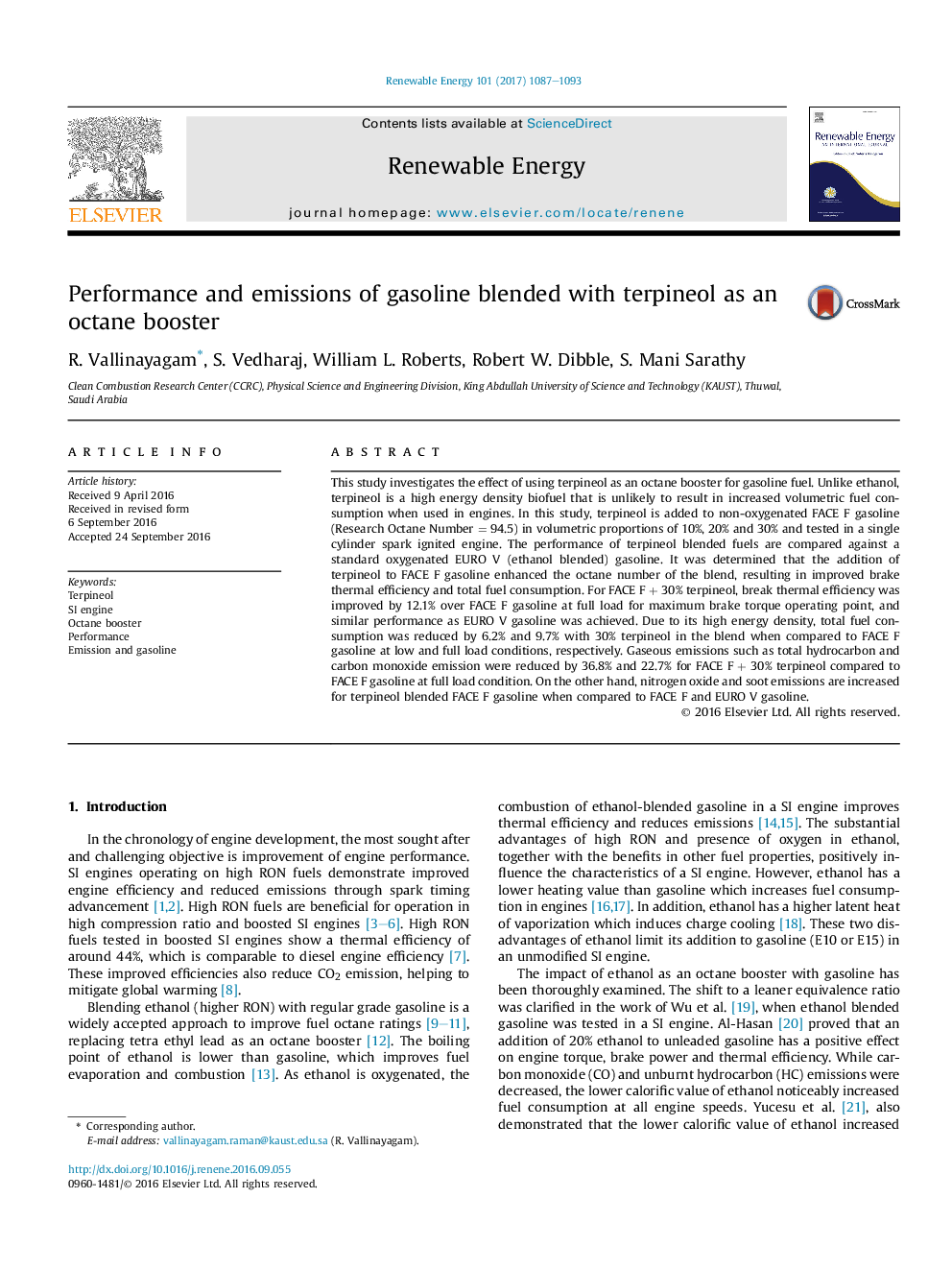| Article ID | Journal | Published Year | Pages | File Type |
|---|---|---|---|---|
| 4926954 | Renewable Energy | 2017 | 7 Pages |
Abstract
This study investigates the effect of using terpineol as an octane booster for gasoline fuel. Unlike ethanol, terpineol is a high energy density biofuel that is unlikely to result in increased volumetric fuel consumption when used in engines. In this study, terpineol is added to non-oxygenated FACE F gasoline (Research Octane Number = 94.5) in volumetric proportions of 10%, 20% and 30% and tested in a single cylinder spark ignited engine. The performance of terpineol blended fuels are compared against a standard oxygenated EURO V (ethanol blended) gasoline. It was determined that the addition of terpineol to FACE F gasoline enhanced the octane number of the blend, resulting in improved brake thermal efficiency and total fuel consumption. For FACE F + 30% terpineol, break thermal efficiency was improved by 12.1% over FACE F gasoline at full load for maximum brake torque operating point, and similar performance as EURO V gasoline was achieved. Due to its high energy density, total fuel consumption was reduced by 6.2% and 9.7% with 30% terpineol in the blend when compared to FACE F gasoline at low and full load conditions, respectively. Gaseous emissions such as total hydrocarbon and carbon monoxide emission were reduced by 36.8% and 22.7% for FACE F + 30% terpineol compared to FACE F gasoline at full load condition. On the other hand, nitrogen oxide and soot emissions are increased for terpineol blended FACE F gasoline when compared to FACE F and EURO V gasoline.
Keywords
Related Topics
Physical Sciences and Engineering
Energy
Renewable Energy, Sustainability and the Environment
Authors
R. Vallinayagam, S. Vedharaj, William L. Roberts, Robert W. Dibble, S. Mani Sarathy,
